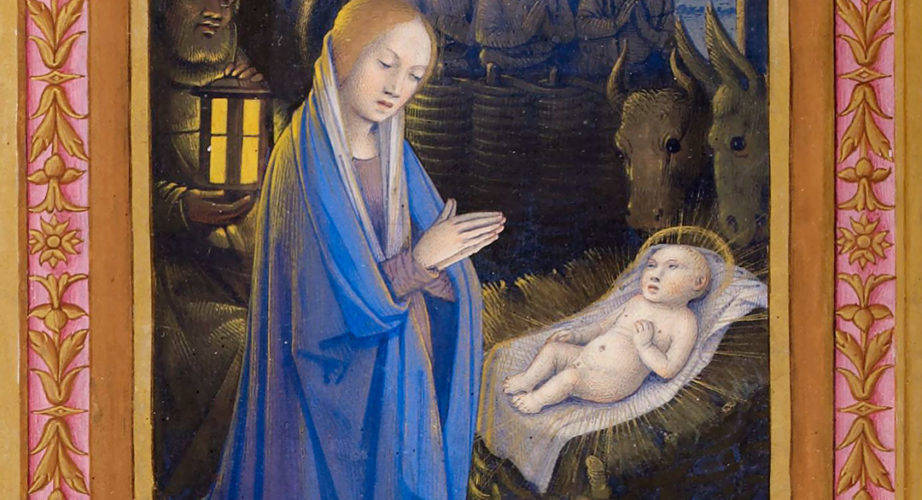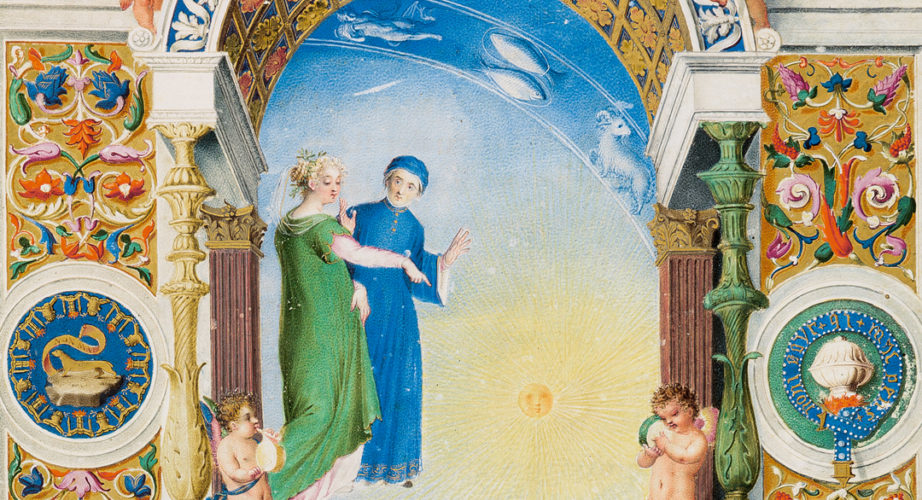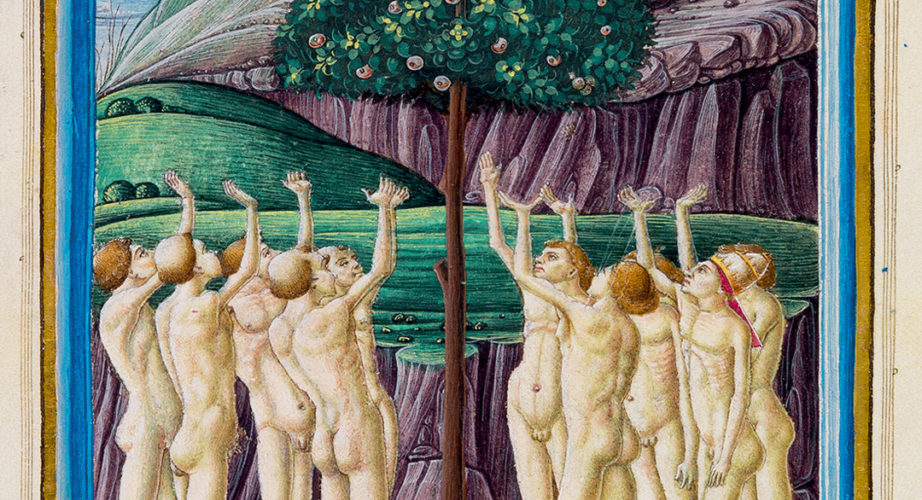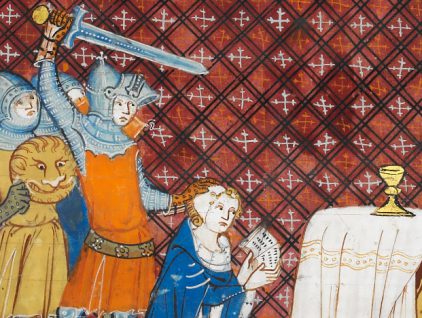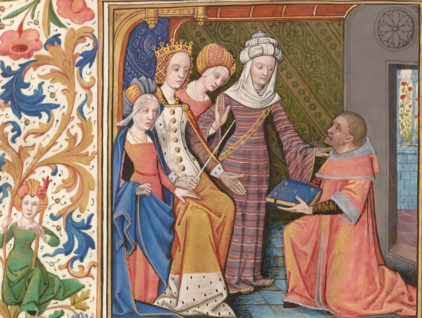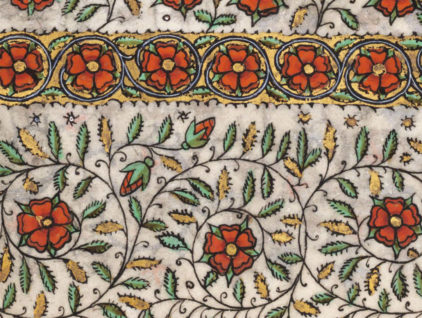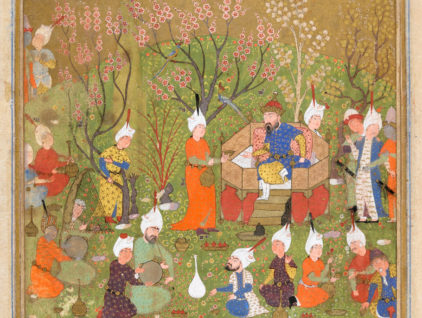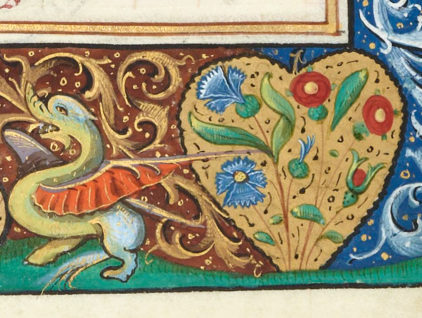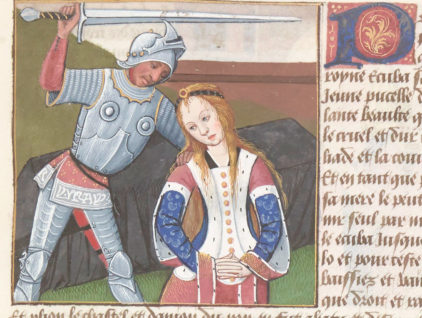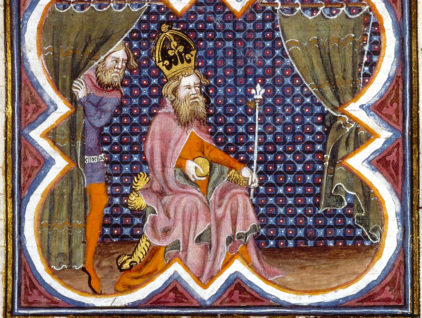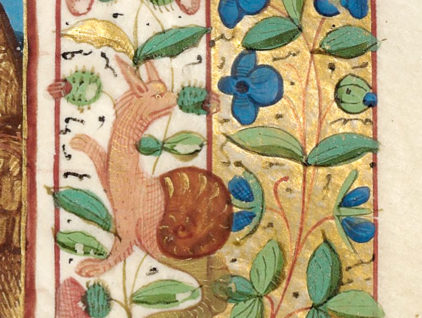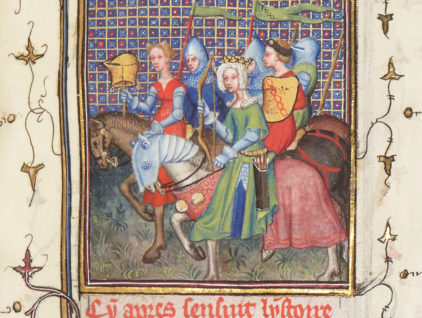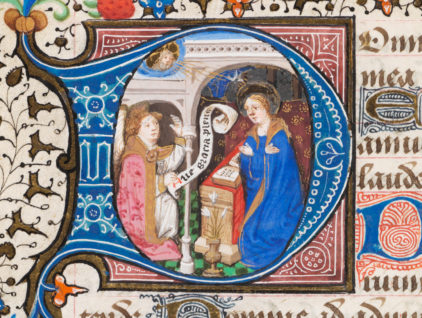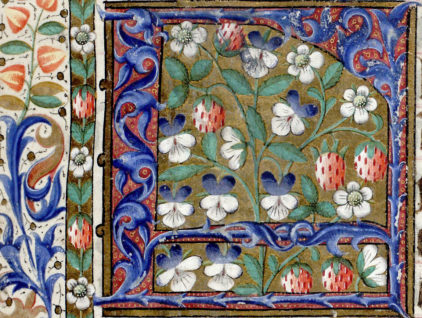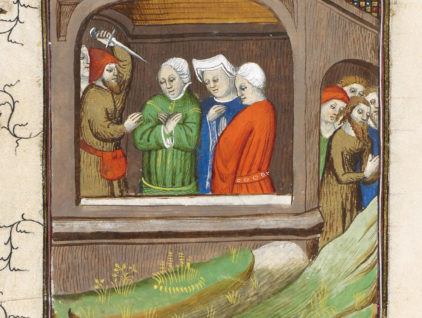Here in the West, we are often used to see the Middle Ages almost exclusively from a Euro-centric point of view, overlooking the great historical importance of the East, its dynasties, and its conquerors. This obviously…
Illumination from a Book of Hours, use of Rome, ms. 654 réserve, f. 2r, 16th century, Bibliothèque de l'Arsenal, Paris.
For the first Women’s Wednesday of the new month we welcome Polixena: daughter of Priam and Hecuba, her sacrifice symbolizes the end of the Trojan War. Polixena was known for her rather brief infatuation with…
April 2 is, according to several reconstructions, to be counted as the birthday of Charlemagne: the great King of the Franks and Lombards, and later Holy Roman Emperor, who managed to unite much of western…
Illuminations from a Book of Hours in Latin and French, ms. 434 réserve, f. 165r, 15th century, Bibliothèque de l'Arsenal, Paris.
A new week, as always, means a new Women's Wednesday! During the course of this column, we repeatedly had the chance to talk about the Amazons and their queens: this time, our Mulier Clara of the week…
The Church celebrates today the feast of the Annunciation (also known as Lady Day), meaning the announcement by the Archangel Gabriel to the Virgin Mary that she would conceive and become the mother of the…
"Strawberries and pansies", illuminated initial F from an epistolary manuscript, use of the Priory of Saint-Martin-des-Champs, ms. 0437, f. 001r, second half of the 15th century, Bibliothèque Mazarine, Paris.
In today’s Women’s Wednesday we celebrate not one but several women: the nameless wives of the Minyans. The Minyans were an autochthonous group that lived in the Aegean region and were usually associated to a…
Initial F, illumination from the manuscript "Liber epistolarum ad usum Ecclesiae metropolitanae Parisiensis", ms. Latin 8895, p. 12, 1753, Département des Manuscrits, Bibliothèque nationale de France, Paris.
